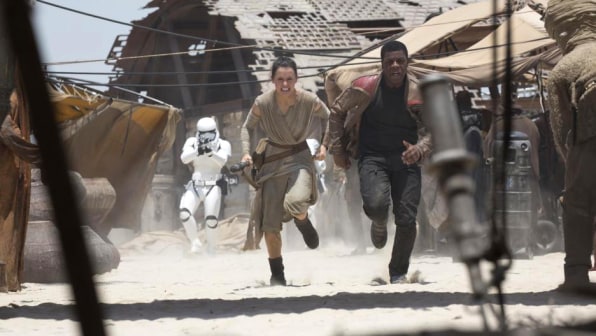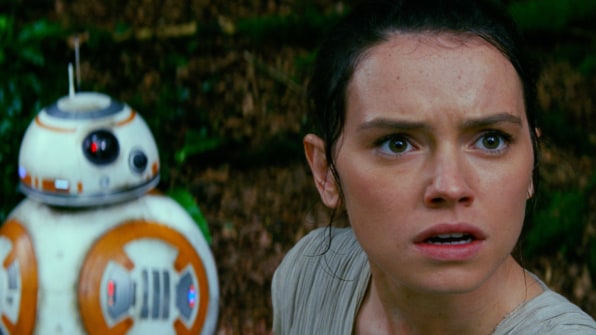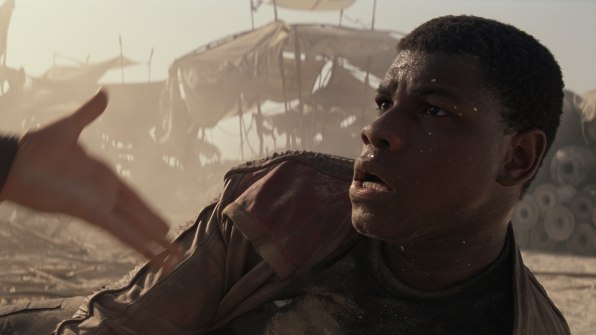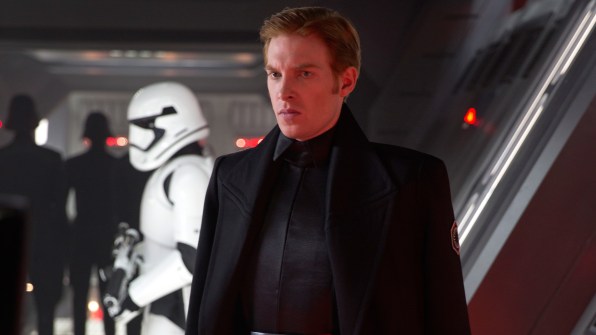Star Wars Black Series Force Awakens Wave 4
The Star Wars franchise is the Shakespearean canon of pop culture. Regardless of artistic quality, it plays the same role as the bard's best tales—exploring stories of good vs. evil in narratives that stay popular for many generations. The Force Awakens, though, is the first reboot made for the millennial generation. It's not a classic old film that clings to tradition, but a new work that will speak to them. (Episodes I-III, being prequels with few of the same characters, are far removed from the originals.) Saying that, The Force Awakens could have been an irritating piece of cloying millennial pandering. But it's not.
Despite the variety of distant planets, strange-looking aliens, dramatic dogfights, heartbreaking captures, and breathless escapes, Star Wars movies tend to trace the same plot arc. The bad guys have more money and better weapons; the heroes are plucky and experts at asymmetrical warfare. It's easy to imagine what the storyboard for this latest film looks like. Reusing the established template can make a director lazy; what saves the film is that it doesn't simply trot out the same characters and dynamics. The new main players—all in their 20s—share some similar traits with their predecessors, who also play major roles in the film; but they're also distinctive, because this generation and era aren't the same.
When Princess Leia (Carrie Fisher) grabbed a laser gun in the original Star Wars movie (Episode IV), it told the audience in 1977 that, yes, women could also be strong and take initiative. The Force Awakens doesn't have to establish that lead hero Rey (Daisy Ridley) is capable. From the beginning of the film, it's clear that she is—not a captive princess, but a solitary scavenger who's been self-sufficient her whole young life. In one chase scene, former stormtrooper Finn (John Boyega) grabs her hand to lead her from danger. "I know how to run without you holding my hand!" she yells at him, but the audience of 2015 already knows that. It doesn't establish anything about her character, but rather shows how much Finn—who's scarcely ever met a woman—needs to learn about the world. This dynamic is a generation apart from the "for-luck" kiss that Leia gives Luke when she holds tight to him as they swing across a chasm in the original Death Star.

Beyond Rey's established capabilities as a fighter and pilot, she soon discovers and immediately starts utilizing far greater powers. Young Luke Skywalker (Mark Hamill) was just as eager, but older warriors tempered his ambitions, putting him on the whiney defensive. Han Solo (Harrison Ford) derisively called Luke "kid" at first, and needed a lot of convincing that the snot-nosed youngster had talent. Half of Yoda's lines seemed to be "not ready" or "too soon." Luke had to pay his dues, just like the gen-X kids who grew up watching him were told when they entered the job market.
In The Force Awakens, not only do Rey, Finn, and other millennials believe in themselves, but the older generation also doesn't hold them back. Han Solo smiles at Rey's abilities and quickly trusts her. He never derides Rey's age, nor does Leia—who is no longer a princess, but a general—seemingly the top general—in the Resistance. Despite her high authority, Leia is immediately accessible, like a CEO who works from a cubicle rather than a corner office.

The way Rey responds to the earlier generations is what saves The Force Awakens from millennial drivel. She's competent but not cocky. Rey reveres the generation of old. She's heard the tales of Luke Skywalker and knows that Han Solo and the Millennium Falcon made the Kessel Run in less than 14 parsecs (though she learns later it was actually 12). Rey is happy to be as good as the previous generation and she doesn't need to prove that she's better, and that her generation is fundamentally different and special.
Like the Force, millennials also have a Dark Side. Kylo Ren (Adam Driver), the Vader-esque antihero, is as young as Rey and Finn, and far more accomplished—reaching a position of immense power at about half the age of his dark lord predecessor. The bad guys aren't ageist, either. Ren has shot up the ranks not only by using powerful native abilities, but also by closely following the company culture of the First Order, a rebranding of the failed Galactic Empire. He's been groomed for leadership.

The First Order's corporate monoculture is the inverse of the flat management style in the Resistance. But it embodies another aspect of the millennial career experience—the true-believer corporate environments in which employees tend to take too many meals in the office cafeteria, talk about embodying the company mission statement, and wear the same company T-shirts. The film pokes fun at the stuffiness of young Kylo Ren when Resistance fighter Poe Dameron (Oscar Isaac) is captured and brought before Ren. A patch of uncomfortable silence ends when Dameron derisively asks, "Who talks first?"
The bad guys' oppressive work environment is more intensely experienced than in previous Star Wars films because The Force Awakens reveals the humanity in some stormtroopers. They aren't just a clone army. For possibly the first time, a Star Wars film shows both a stormtrooper removing his helmet and one bleeding from wounds. Subtle gestures, like two troopers stopping mid-stride and slinking back while Ren has a temper tantrum with his light saber, reveal enough humanity to show how trapped they are in a very bad job.

Ren's ultra-stiff counterpart General Hux (played by 32-year-old Domhnall Gleeson, a comparative geezer), is the one near carbon-copy character from the original Star Wars—a substitute for Peter Cushing's Admiral Tarkin. His rabid, wicked glee in proclaiming a new superweapon to the throngs of soldiers is a blatant imitation of Hitler addressing the believers in Nuremberg. It also feels a bit like a blowhard CEO with a new product release—albeit a very sinister one.
Star Wars Black Series Force Awakens Wave 4
Source: https://www.fastcompany.com/3054722/heres-our-star-wars-review-the-force-awakens-embraces-millennials-without-panderin